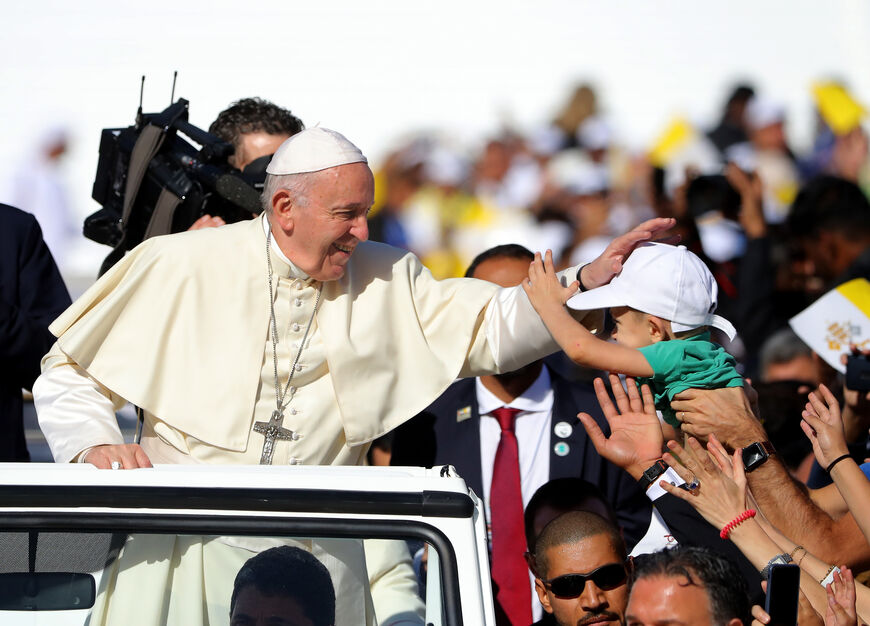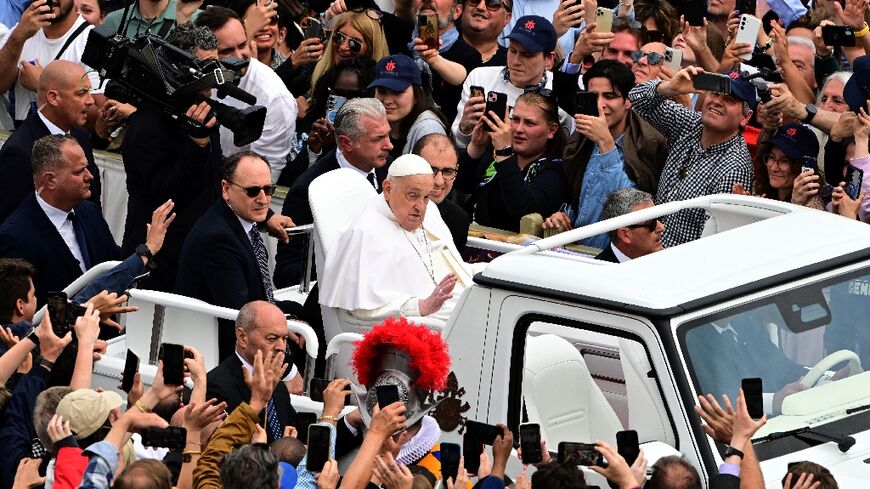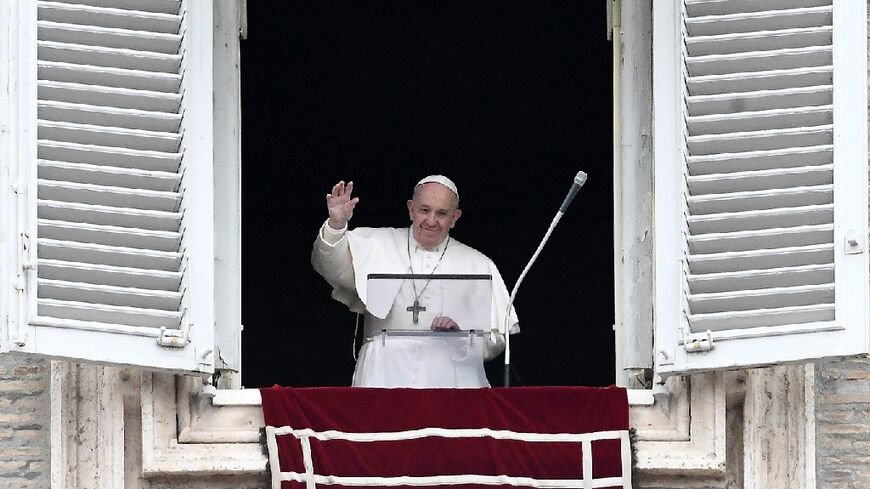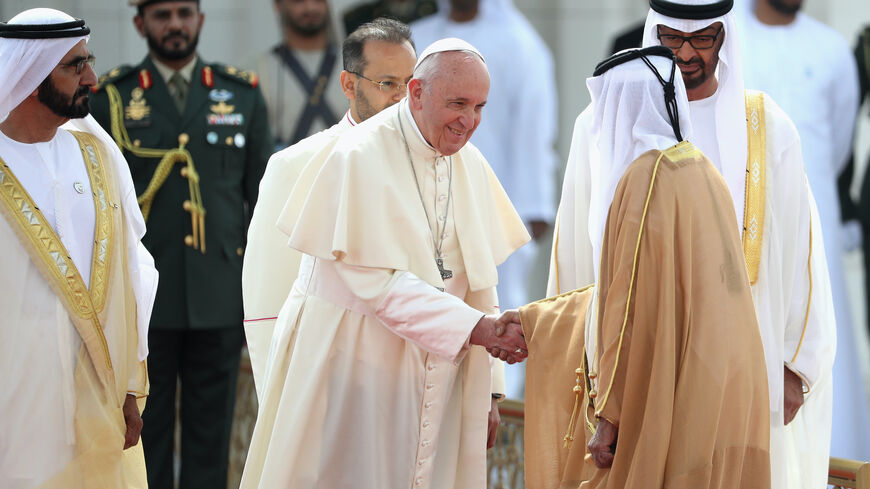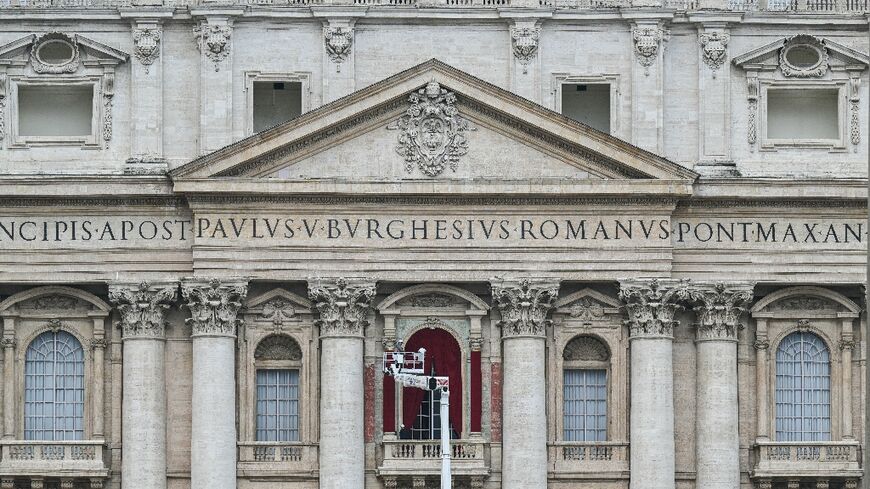Pope Francis, voice for Middle East peace and first to visit Gulf, dies at 88
Pope Francis died on Monday after serving as pontiff for 11 years, advocating for human rights and inclusion in the Middle East and beyond.
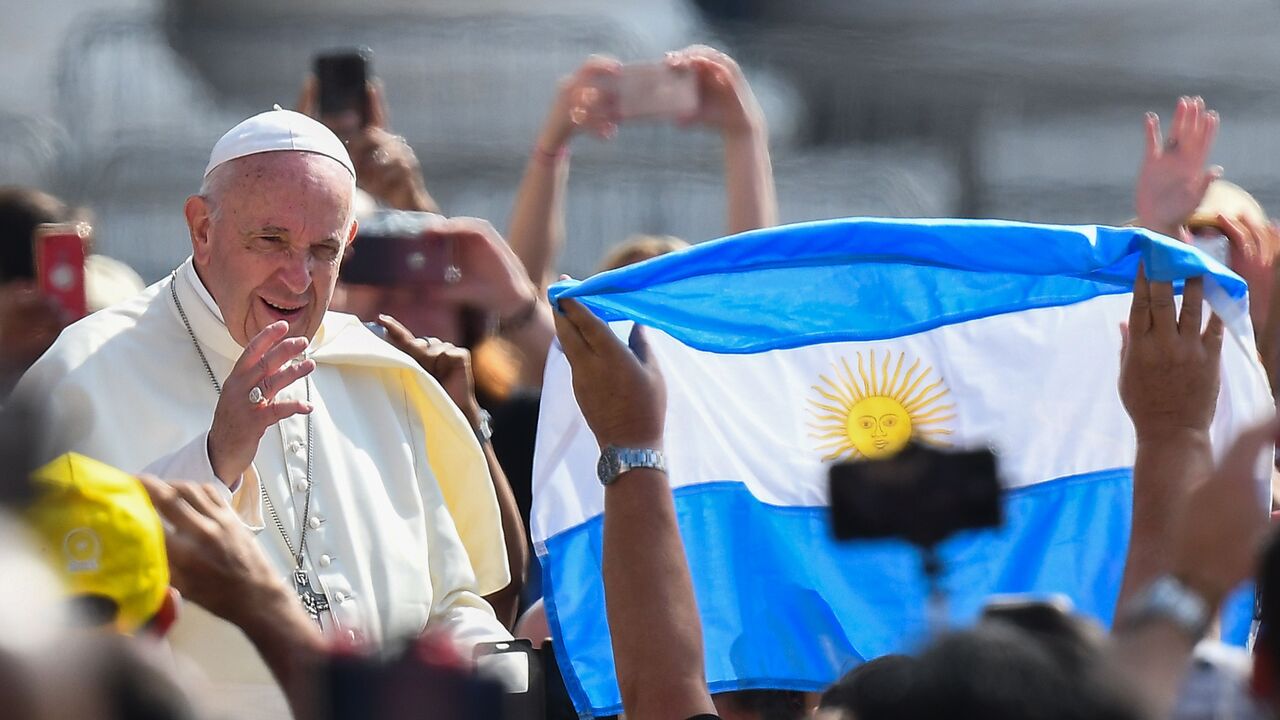
Pope Francis, long an advocate for human rights and peace in the Middle East, died on Monday at 88 after a bout of illness, according to a statement from the Vatican.
Cardinal Kevin Farrell, the Vatican camerlengo, announced Francis' death on April 21. "Dear brothers and sisters, it is with profound sadness I must announce the death of our Holy Father Francis,” Farrell announced on the Vatican’s TV channel.
“At 7:35 this morning the Bishop of Rome, Francis, returned to the house of the Father.”
Francis was admitted to Rome's Gemelli Hospital on Feb. 14 after a bout of bronchitis developed into double pneumonia. Despite being discharged on March 23, his condition remained fragile.
His final public appearance was on Easter Sunday, April 20, when he blessed the faithful in St. Peter’s Square. He died the following morning at his residence in Casa Santa Marta.
Messages of love and mourning poured in from around the world, particularly from his home country of Argentina.
US Vice President JD Vance, who briefly met with the pontiff on Sunday to exchange Easter greetings, expressed his condolences.
“I just learned of the passing of Pope Francis. My heart goes out to the millions of Christians all over the world who loved him,” he wrote on X. “I was happy to see him yesterday, though he was obviously very ill.”
European Commission President Ursula von der Leyen said Pope Francis, who “inspired millions, far beyond the Catholic Church, with his humility and love so pure for the less fortunate.”
“My thoughts are with all who feel this profound loss,” she wrote on X.
Born Jorge Mario Bergoglio to Italian immigrant parents in Buenos Aires on Dec, 17, 1936, Pope Francis worked as a bouncer and janitor before studying chemistry and later humanities and philosophy. He joined the Jesuit order in 1958, was ordained a priest in 1969 and became archbishop in 1998. In 2001, Pope John Paul II named him a cardinal.
Pope Francis had led the Catholic Church and Vatican City since March 13, 2013. He was the first pope from Argentina and the first from the Americas. At 76, Pope Francis was elected to the papacy after the resignation of Pope Benedict XVI. He was often characterized by his humility and his particular care for impoverished people.
His tenure as pope was marked by socially progressive leadership as he worked to make the traditionally conservative church more inclusive to women and the LGBTQ+ community. Francis took a vocal stance on humanitarian issues. Earlier this month, he rebuked Vance’s theological justification for anti-immigration policies. Francis’ stances have drawn criticism, however, from both the church's conservative and its progressive elements, which saw his stances and actions as merely symbolic.
Legacy
While Francis rejected the ordination of women as priests, he began a dialogue on the possibility of their becoming deacons — one that ultimately did not reach a consensus — and in 2021, he issued an order allowing women to become acolytes and lectors.
He departed from Catholic tradition by taking a more empathetic approach to the LGBTQ+ community, advocating acceptance and support. He supported same-sex civil unions but not marriage in the church. In some ways, however, he has kept with tradition on this topic, calling gender-affirming surgery a threat to one’s “dignity.”
Francis was unabashed in his aims to right historical wrongs by the church, including corruption and abuse scandals. The pope issued apologies for widespread sexual abuse in the church as well as the church's outsized role in abuses toward indigenous people in Canada that the pope called “cultural genocide” in 2022.
In 2023, he became the first pope to attend the G7 summit, where he gave a speech warning of the dangers of artificial intelligence and spoke about the wars in Ukraine and Gaza. He has warned against unfettered capitalism as a “new tyranny” and has urged the church and the world to address climate change.
Pope Francis and the Middle East
Francis repeatedly made headlines with comments about the Israel-Hamas war and advocacy for Palestinians in Gaza.
In September 2024, Francis called Israel’s actions in Gaza “immoral” and suggested that Israel’s war had been “disproportionate.” In November, he took a step further by calling for an investigation into whether Israel’s campaign in Gaza constituted genocide, saying, “We should investigate carefully to determine whether it fits into the technical definition formulated by jurists and international bodies.” In 2023, he met with families of Israeli hostages as well as Palestinians living through Israel’s military campaign in Gaza.
Since October 2023, the pope held near-daily calls with Reverend Gabriel Romanelli, the priest of the only Catholic church in Gaza. He continued to do so from his hospital bed.
Pope Francis made multiple trips to the Middle East and became the first pope to visit the Arabian Peninsula when he traveled to the Emirates in 2019.
The pope visited:
Bahrain in 2022
Iraq in 2021
United Arab Emirates in 2019
Morocco in 2019
Egypt in 2017
Israel in 2014
Palestine in 2014
Jordan in 2014
Turkey in 2014
His visits to the Middle East have included meetings with Egyptian President Abdel Fattah al-Sisi, Turkish President Recep Tayyip Erdogan, UAE President Mohammed bin Zayed, Israeli Prime Minister Benjamin Netanyahu and other regional leaders.
After his visit to Israel and Palestine in 2014, Pope Francis invited Israeli President Shimon Peres and Palestinian Authority President Mahmoud Abbas to the Vatican, where the pope facilitated a meeting in which the two leaders committed to seek peace.
The pope has called for religious freedom across the region, particularly in Iran. As recently as November, the pope said to a delegation from Tehran visiting the Vatican, “Freedom of conscience and religion is the cornerstone of the entire edifice of human rights.” The pope refrained from explicitly criticizing the Iranian government.
What’s next for the papacy?
After a pope dies, the Vatican convenes a papal conclave in which 138 eligible members of the College of Cardinals will vote on a new pope.
There are four rounds of voting a day until a candidate secures a two-thirds majority. A conclave can last anywhere from a single day to multiple months.
